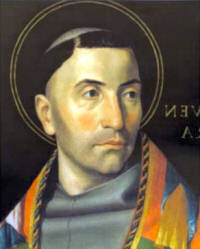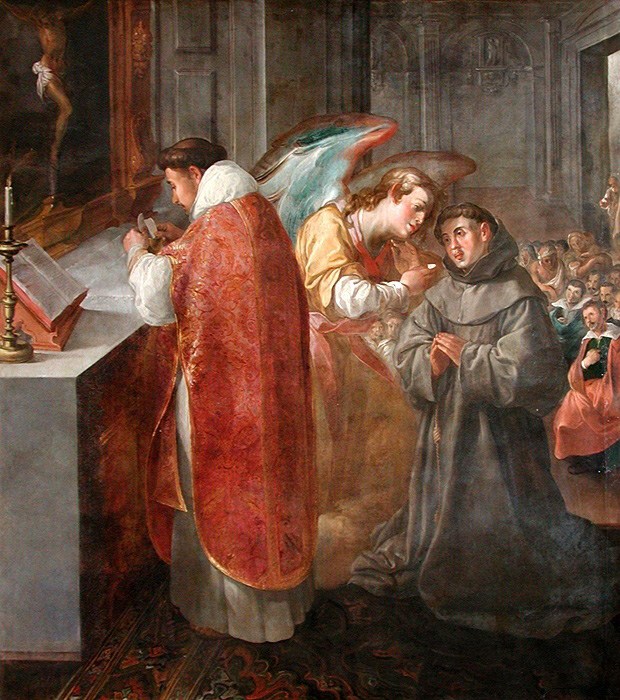...we must suspend all the operations of the mind and we must transform the peak of our affections, directing them to God alone. This is a sacred mystical experience. It cannot be comprehended by anyone unless he surrenders himself to it; nor can he surrender himself to it unless he longs for it; nor can he long for it unless the Holy Spirit, whom Christ sent into the world, should come and inflame his innermost soul. Hence the Apostle says that this mystical wisdom is revealed by the Holy Spirit.
If you ask how such things can occur, seek the answer in God’s grace, not in doctrine; in the longing of the will, not in the understanding; in the sighs of prayer, not in research; seek the bridegroom not the teacher; God and not man; darkness not daylight; and look not to the light but rather to the raging fire that carries the soul to God with intense fervour and glowing love. The fire is God, and the furnace is in Jerusalem, fired by Christ in the ardour of his loving passion. Only he understood this who said: My soul chose hanging and my bones death. Anyone who cherishes this kind of death can see God, for it is certainly true that: No man can look upon me and live.
Let us die, then, and enter into the darkness, silencing our anxieties, our passions and all the fantasies of our imagination. Let us pass over with the crucified Christ from this world to the Father, so that, when the Father has shown himself to us, we can say with Philip: It is enough. We may hear with Paul: My grace is sufficient for you; and we can rejoice with David, saying: My flesh and my heart fail me, but God is the strength of my heart and my heritage for ever. Blessed be the Lord for ever, and let all the people say: Amen. Amen!
And from Bonaventure's book on gaining holiness of life...
All His life long, Jesus Christ Our Lord was
an example of poverty. Let me tell you, O
holy virgin, and all you who profess poverty,
let me tell you, how poor the Son of God
and King of Angels was whilst He lived
in this world. He was so poor that oftentimes
He did not know which way to turn for a lodging. Frequently, He and His Apostles were
compelled to wander out of the city and sleep
where they could. It is with reference to such
a happening that St. Mark the Evangelist
writes: "Having viewed all things round
about, when now the eventide was come, He
went out to Bethania with the twelve."
These words St. Bede explains as follows : "After looking all around and making enquiries as to whether anyone was prepared to give Him hospitality for He was so poor that no one looked upon Him with pleasure He could not find a dwelling open to Him in the town." In similar strain St. Matthew writes: "The foxes have holes and the birds of the air nests ; but the Son of Man hath not where to lay His head."
Did you never read, did you never hear what Christ the Lord said of poverty to His Apostles? It occurs in the Gospel of St. Matthew. "Be not solicitous, therefore, saying, what shall we eat, or, what shall we drink. Your Father knoweth that you have need of all these things."; Here is something else He said. It is from St. Luke. "When I sent you without purse, and scrip, and shoes, did you want anything? But they said: Nothing."
P.S. Can you believe the priest at Mass this morning did not use the readings of the Mass for St. Bonaventure, or the preface applicable.
Sigh....just another day here.







.jpg)
